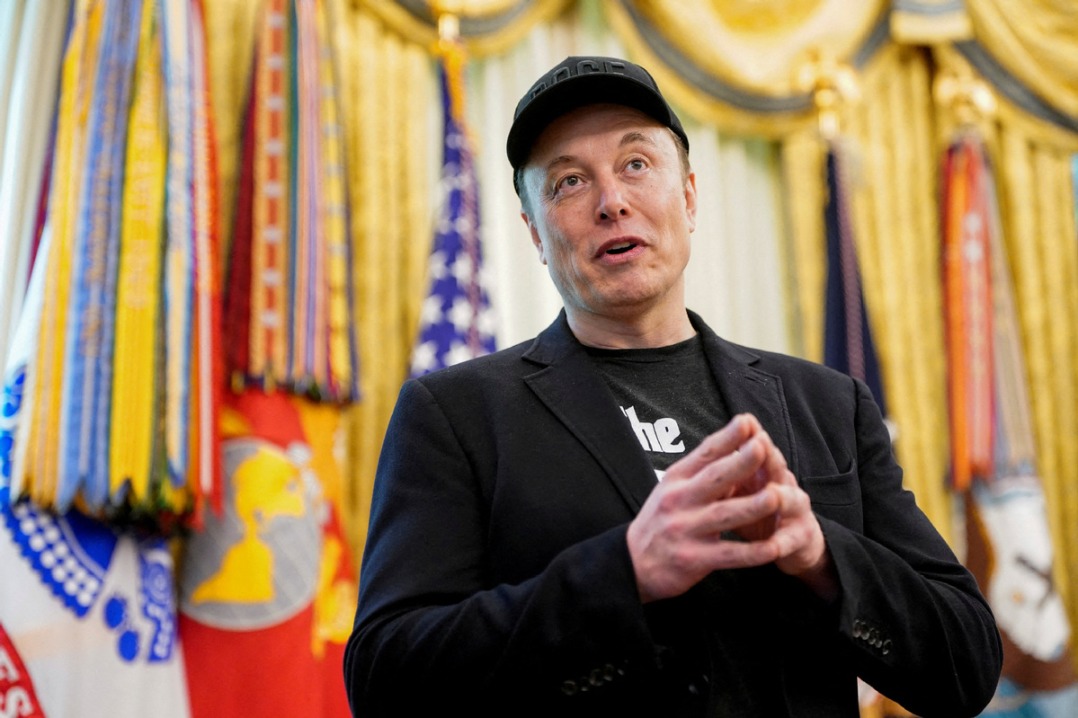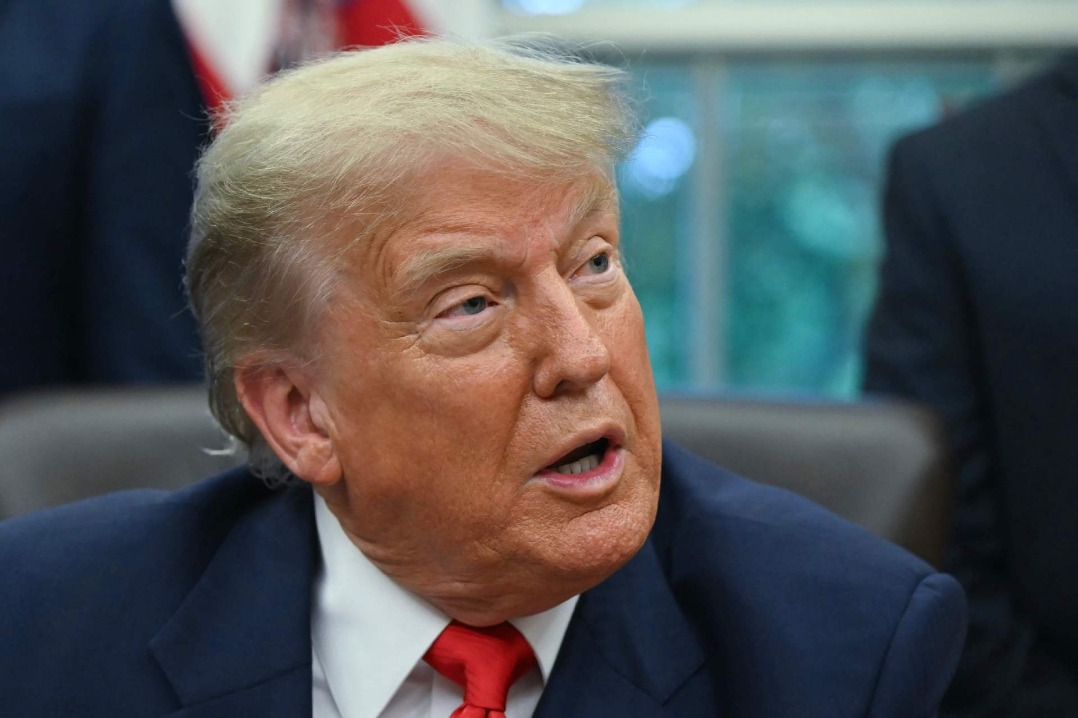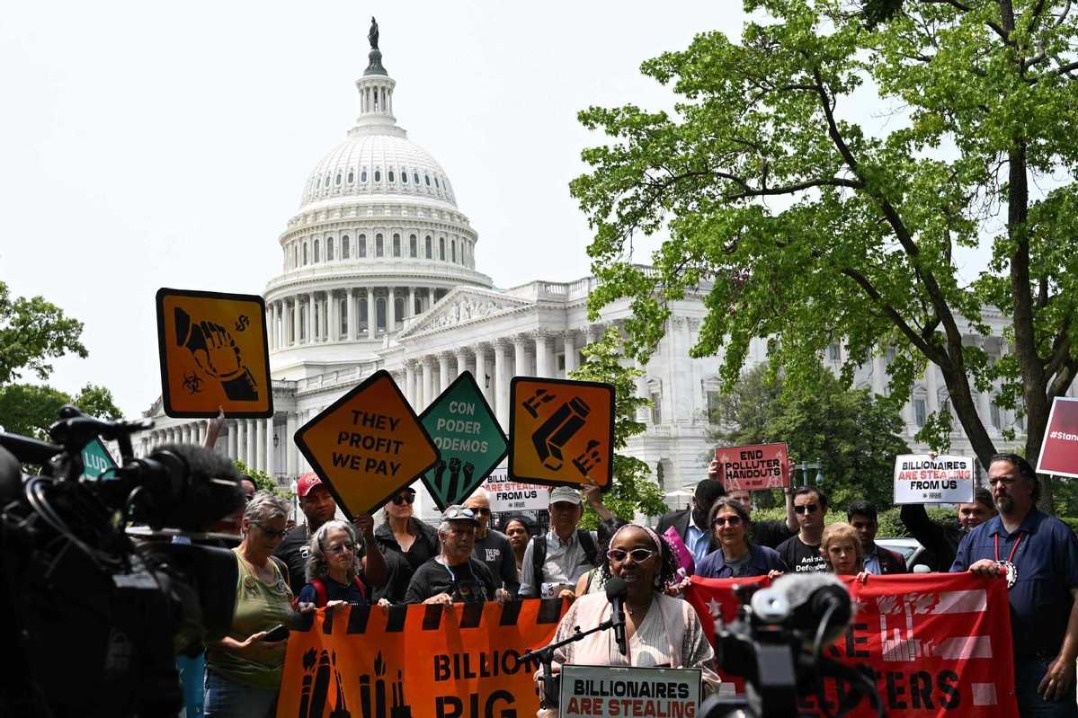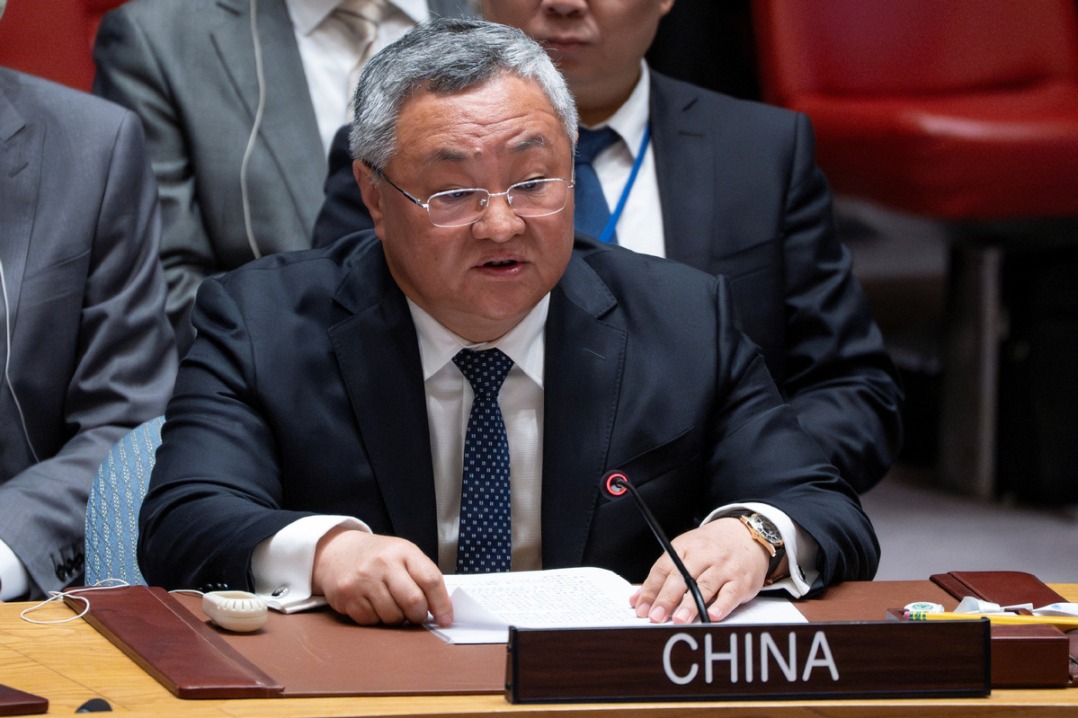Germany's CDU/CSU, SPD sign coalition deal for new gov't

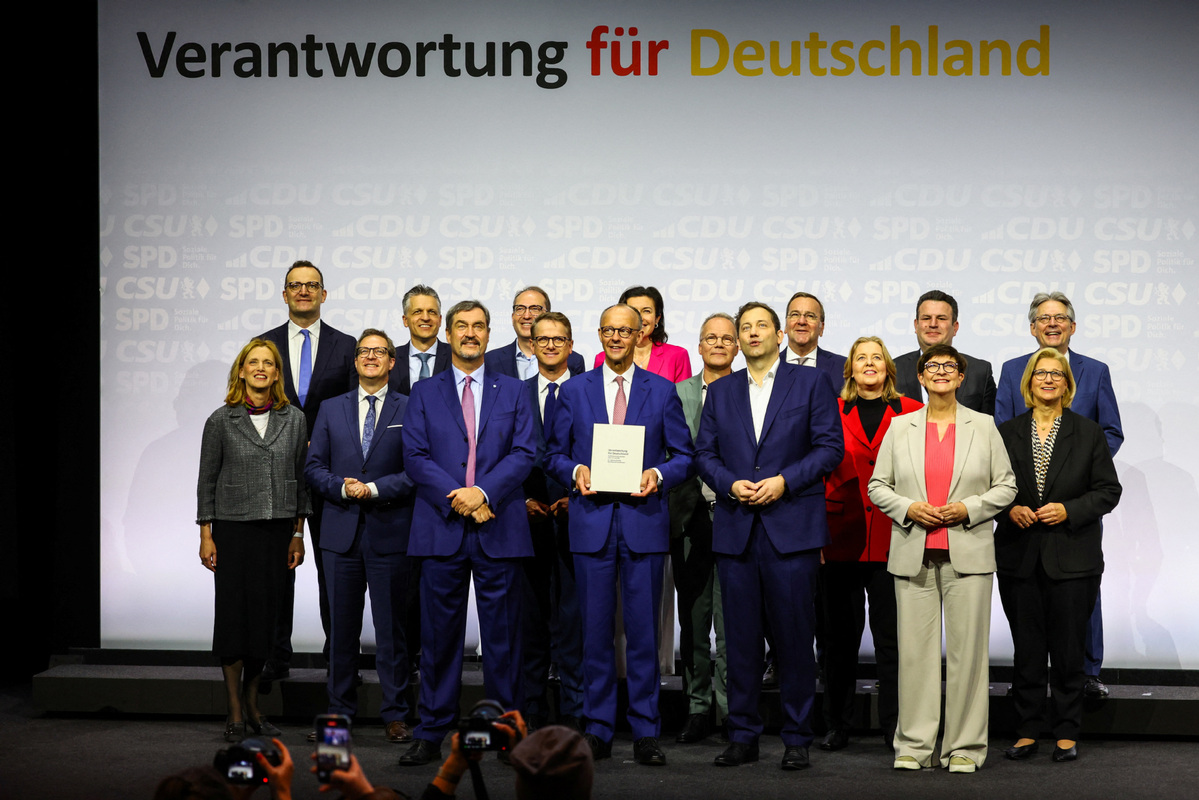
BERLIN -- Leaders of Germany's conservative CDU/CSU and center-left Social Democratic Party (SPD) signed a coalition agreement on Monday, paving the way for the formation of a new federal government.
Under the coalition pact finalized in April after weeks of negotiations, the parties pledged to enhance Germany's economic competitiveness, strengthen national defense, and tighten migration policies.
The CDU/CSU, unofficially the Union parties or the Union, is a conservative political alliance of two political parties in Germany.
The Bundestag, Germany's lower house of parliament, is scheduled to elect Friedrich Merz, leader of the CDU, as chancellor on Tuesday. Once Merz is elected, his government will take office, ending the current administration led by Chancellor Olaf Scholz, and SPD's co-leader Lars Klingbeil will take the post of vice chancellor.
According to SPD's announcement of key positions in the new cabinet on Monday, Klingbeil will also take the helm of the Finance Ministry. Boris Pistorius will be retaining his post as defense minister. Baerbel Bas, former president of the Bundestag, has been nominated as minister of Labor and Social Affairs.
Other nominations include 35-year-old Reem Alabali-Radovan as minister for Economic Cooperation and Development.
Speaking at a press conference before the signing, Merz said the coalition aims to advance Germany with reforms and investments. Highlighting the capabilities of the new government, Merz vowed to implement reform from day one, build essential infrastructure, and make a strong contribution to Europe.
"I am very confident that starting tomorrow, we will succeed in governing our country with strength, planning, and trust," Merz said.
At the press conference, Klingbeil said the new government will start its work swiftly to stimulate growth in Germany and attract future-oriented industries to Germany.
During coalition negotiations, the two parties agreed to establish a 500-billion-euro (about $567 billion) fund dedicated to infrastructure and climate-neutrality investments.
Klingbeil pledged to cut bureaucracy and streamline procedures to accelerate the realization of infrastructure projects.
Though the new government plans to tighten migration policies, Klingbeil reaffirmed that Germany remains a country of immigration, stressing that the country will manage migration with clear rules. (1 euro = $1.14)
















